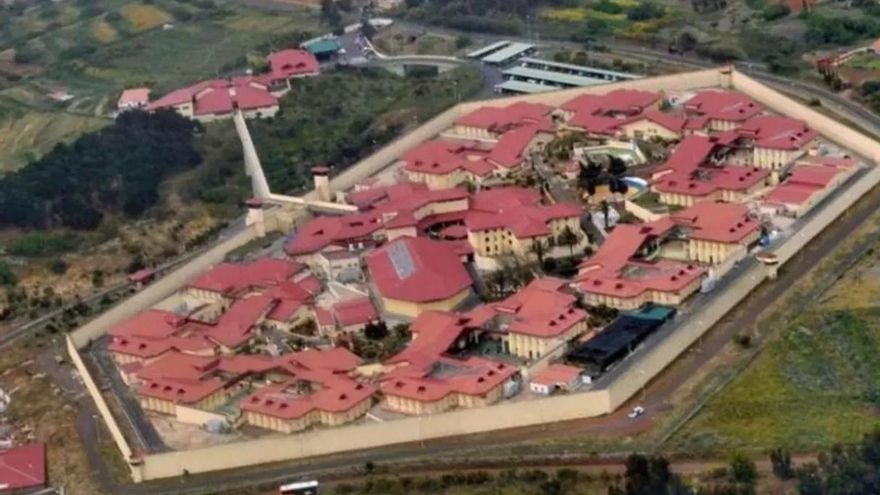
In Canarias, there are a total of five correctional facilities housing a prisoner population that reached around 2,400 individuals in 2023. According to a study conducted by the Hestia Association, over 60% of male inmates are fathers, and over 75% of female inmates – three out of four – are mothers, resulting in a birth rate double the national average.
The program Parents without barriers, a pioneering initiative in the Archipelago, is aimed at both incarcerated parents and their children, who are described as “the forgotten victims of incarceration” by the organization. With the intention of preventing the youngest from suffering during the process, Hestia offers services for family reintegration, conflict management, and support for healthy and positive parenting. Moreover, the program doesn’t end when individuals are released, as they are also accompanied to facilitate their autonomy and personal emancipation.
The organization focuses a significant part of its efforts on Parents without barriers, an initiative aimed at fostering family bonds during parents’ time in prison. Its president, Juan Carlos Martín, mentions that they started the pilot program in 2017, following several studies indicating that recidivism drops to 2% when family relationships are encouraged. “When they prioritize their children, they fill their days, and the results are very positive,” he emphasizes.
The project is being implemented uniquely in Gran Canaria. The president notes that facilities in Tenerife and Lanzarote have submitted multiple requests for the program to expand to their islands. However, “despite Hestia’s willingness, we face limitations mainly related to the deadlines for receiving public subsidies“. This is a common complaint among third sector entities and aligns with the announcement by the Ministry of Social Welfare approving a grant of nearly 840,000 Euros to subsidize projects in the area of children and families.
Delayed Assistance
Organizations often have to advance funds to provide services because, as Martín asserts, the subsidies always arrive late. For instance, the first announcement for this year was made on July 2 for aid that is provided throughout the calendar year, from January to December. The president predicts that the subsidy will resume in September and, at the very least, they will have to wait until November for the final resolutions to be released. Furthermore, he points out that many other initiatives do not come to fruition because it requires an effort they cannot afford without prior financing.
“Public administration fails to assist the most vulnerable users, shifting the responsibility of providing these services to NGOs,” he criticizes. This is not an isolated incident, as he emphasizes that it is a recurring issue regardless of the political landscape. Juan Carlos Martín stresses the need for institutions like councils and municipalities to join forces and coordinate efforts to meet the entire demand because, if that were to happen, they could cater to many more families. “We had to close a facility for protected minors due to lack of subsidy in Gran Canaria, and we have also put aside other projects because they are currently unfeasible without funding or public contracts”.
Positive Parenthood
The main goal that the Hestia Association strives for is to make Canarias a region with homes filled with love and respect, free from violence. Positive Parenthood, based on the affection and care from parents to children, is the main driving force motivating them to assist families, particularly those in vulnerable situations. In this context, two of the main socio-educational projects they develop are Parents without barriers, in Gran Canaria, and FamiTEA, primarily in Tenerife.
The FamiTEA project focuses on improving parental skills and promoting the psychological and emotional well-being of families with children aged 2 to 8 exhibiting signs or a diagnosis of Autism Spectrum Disorder (ASD). Around 110 individuals – 62 of whom are new enrollees – participated in the initiative held in Tenerife since 2019.
Caring for the mental health of parents benefits the youngest members of the family. For this reason, the project aims to optimize stress and anxiety management, whether on an individual, group, or community level. Through home services, family gatherings at local and inter-island levels, and awareness actions, the Association aims to provide support, guidance, and psychosocial and educational assistance.
Children with ASD often have inclusion projects and support, but parents rarely benefit from any form of aid. The president of Hestia reveals that this was a complaint made by a member of the association, which spurred them to create the FamiTEA project. According to him, relatives reported a situation of “complete helplessness”. Many experience anxiety or stress upon receiving the news as they are unsure how to handle such disorders. “There is a process, even a grieving process, where you don’t know how to address the situation. That’s why we work to show them the personal resources they have,” explains Juan Carlos Martín.
















